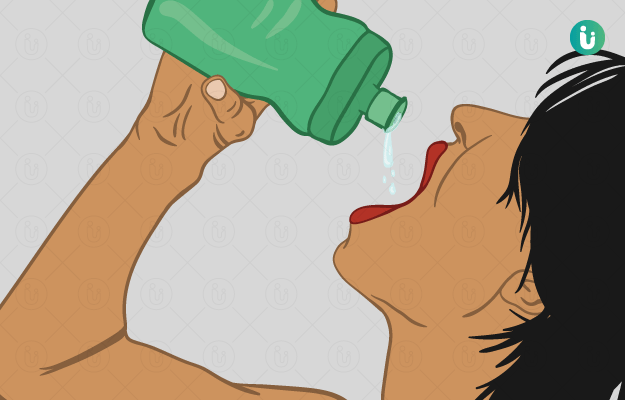What is dry mouth?
Dry mouth, also known as xerostomia, is a condition associated with a reduced salivary flow. This is a very common symptom and frequently seen as a side effect of many medications.
You may also experience dry mouth when you are nervous or under stress. It is associated with ageing as well. Severe dry mouth can lead to difficulty in speech, chewing, and swallowing. Dry mouth also increases the risk of dental caries and other infections, such as oral thrush.
What are its main signs and symptoms?
The following are the signs and symptoms of dry mouth:
- Speaking, chewing, and swallowing difficulties
- Frequent feeling of thirst
- Cracking of lips
- Reduced sense of taste
- Sore throat
- Halitosis (bad breath)
- Drying of the corners of mouth
- Frequent ulcerations in the mouth
- Difficulty in wearing dentures
- Increased gum infection
What are the main causes?
Dry mouth occurs due to several reasons:
- Dehydration due to inadequate intake of fluids or due to medical conditions, such as kidney disease and diabetes.
- Breathing through the mouth (during night) is also responsible for dry mouth. Nasal polyps, enlarged tonsils, and allergic rhinitis are the conditions that force breathing through the mouth, leading to dryness.
- Diabetes causes reduced salivary flow
- Radiation therapy for cancer treatment
- Smoking
- Dry mouth may be a result of an autoimmune disease as well (Sjogren’s syndrome)
- Drug induced
How is it diagnosed and treated?
It can be diagnosed by the following methods:
- Sialometry – measuring the flow of saliva
- Sialography – use of radiopaque dye in the salivary duct
- Other Investigations – ultrasound, magnetic resonance imaging, biopsy of the salivary gland, etc.
There is no standard guideline for the treatment of dry mouth. However, you may try reducing the discomfort by the following means:
- Salivary lozenges and salivary spray for immense relief
- Salivary gland stimulants, such as chewing gums and organic acids
- Increased fluid intake to reduce dryness of mouth
- Systemic medicines
Differential diagnosis
- Sjogren’s syndrome is a condition of dry mouth and dry eyes
- Radiation therapy can result in mouth dryness
- Physiological conditions, such as sleep deprivation, anxiety, and nervousness, may result in transient dryness of mouth
- Hormonal disorders

 Doctors for Dry Mouth
Doctors for Dry Mouth  OTC Medicines for Dry Mouth
OTC Medicines for Dry Mouth



















